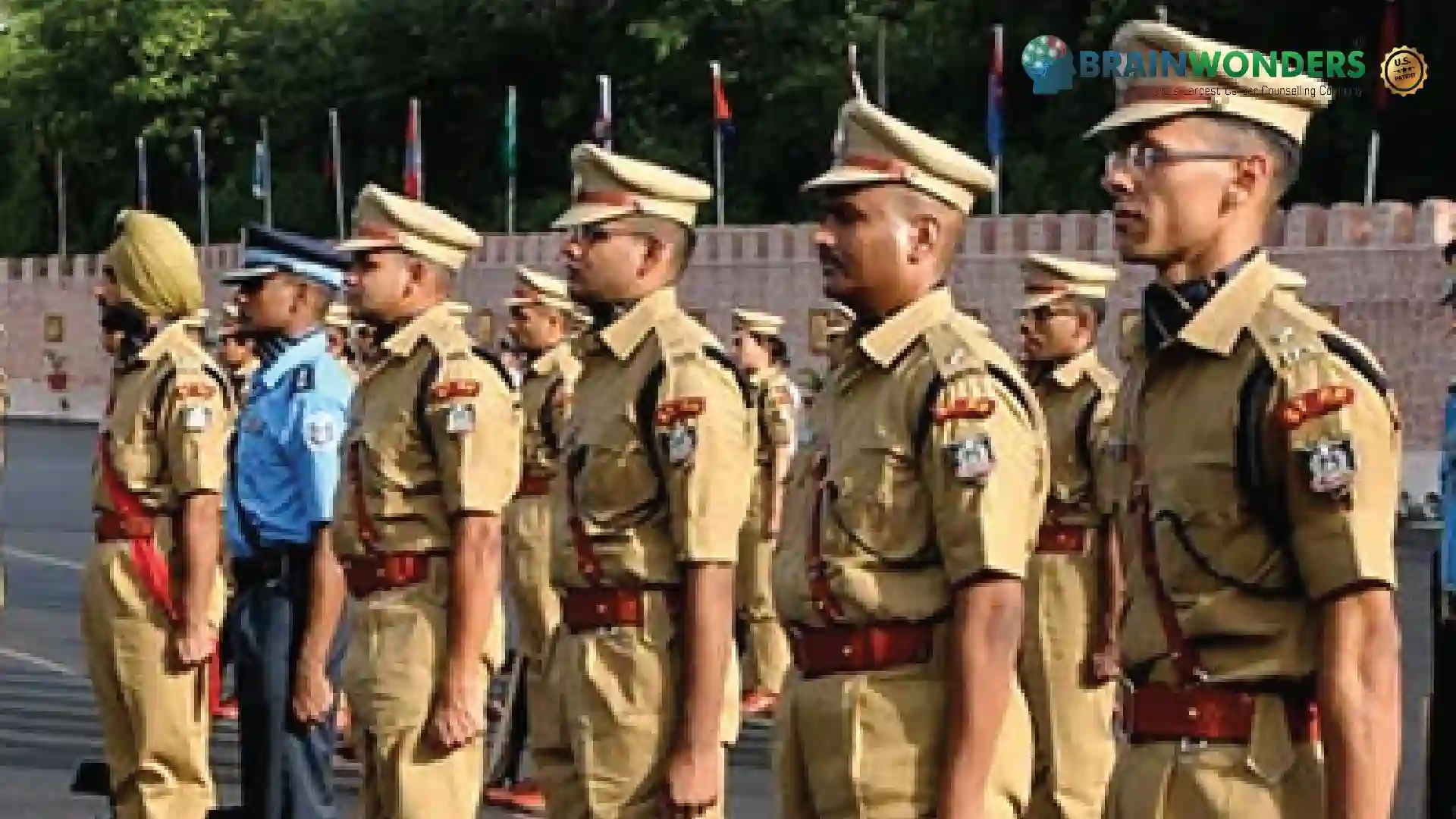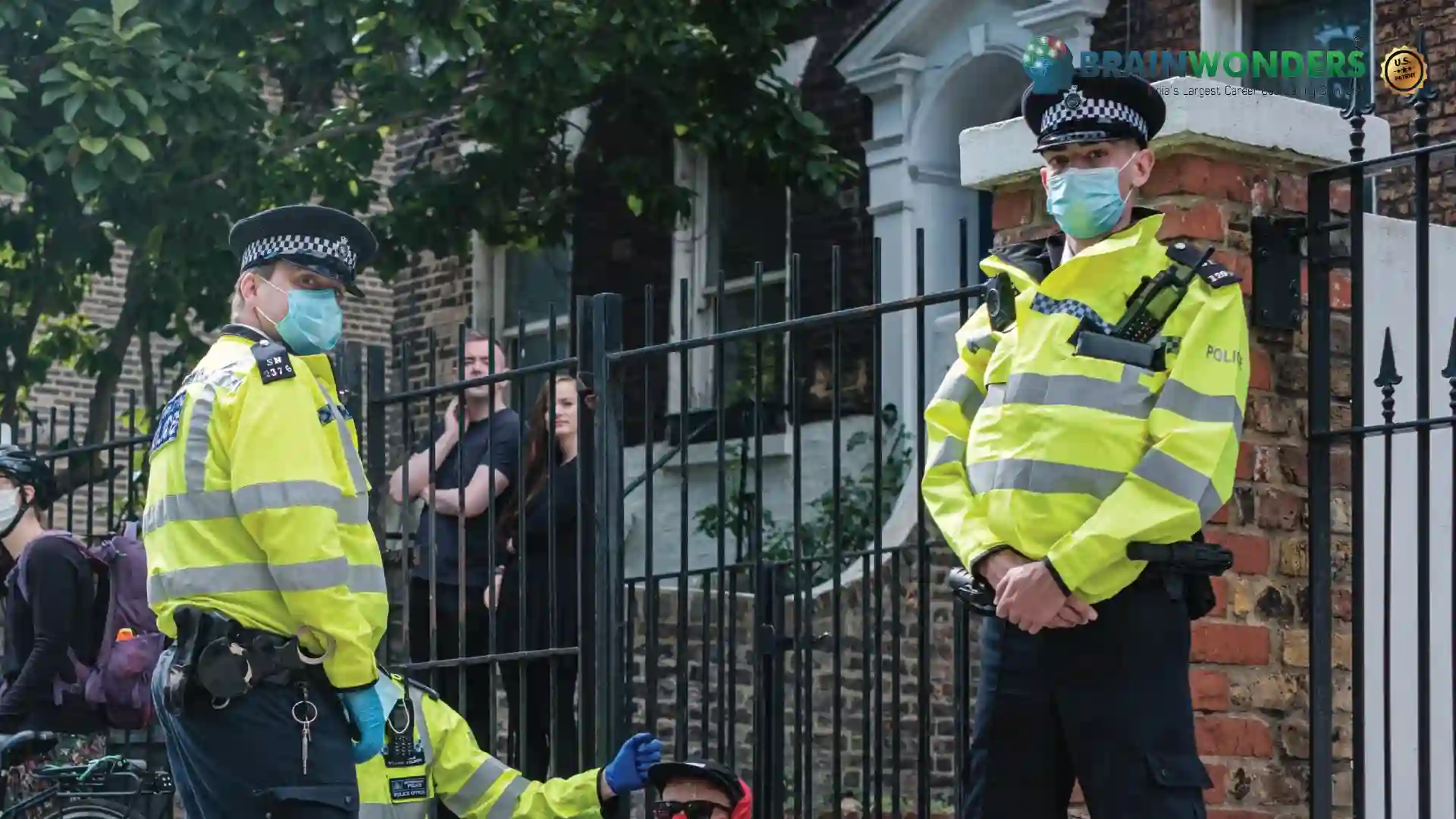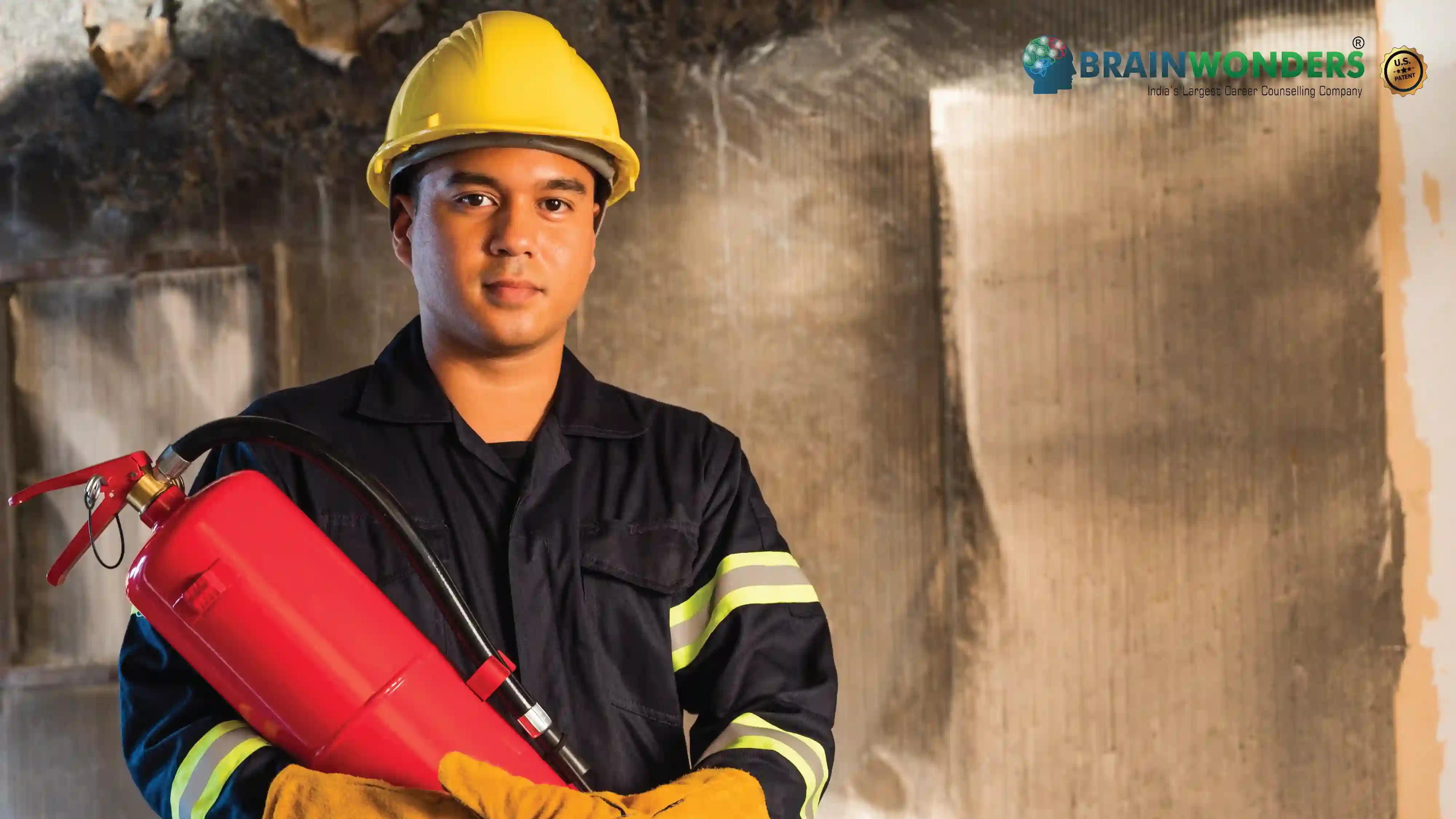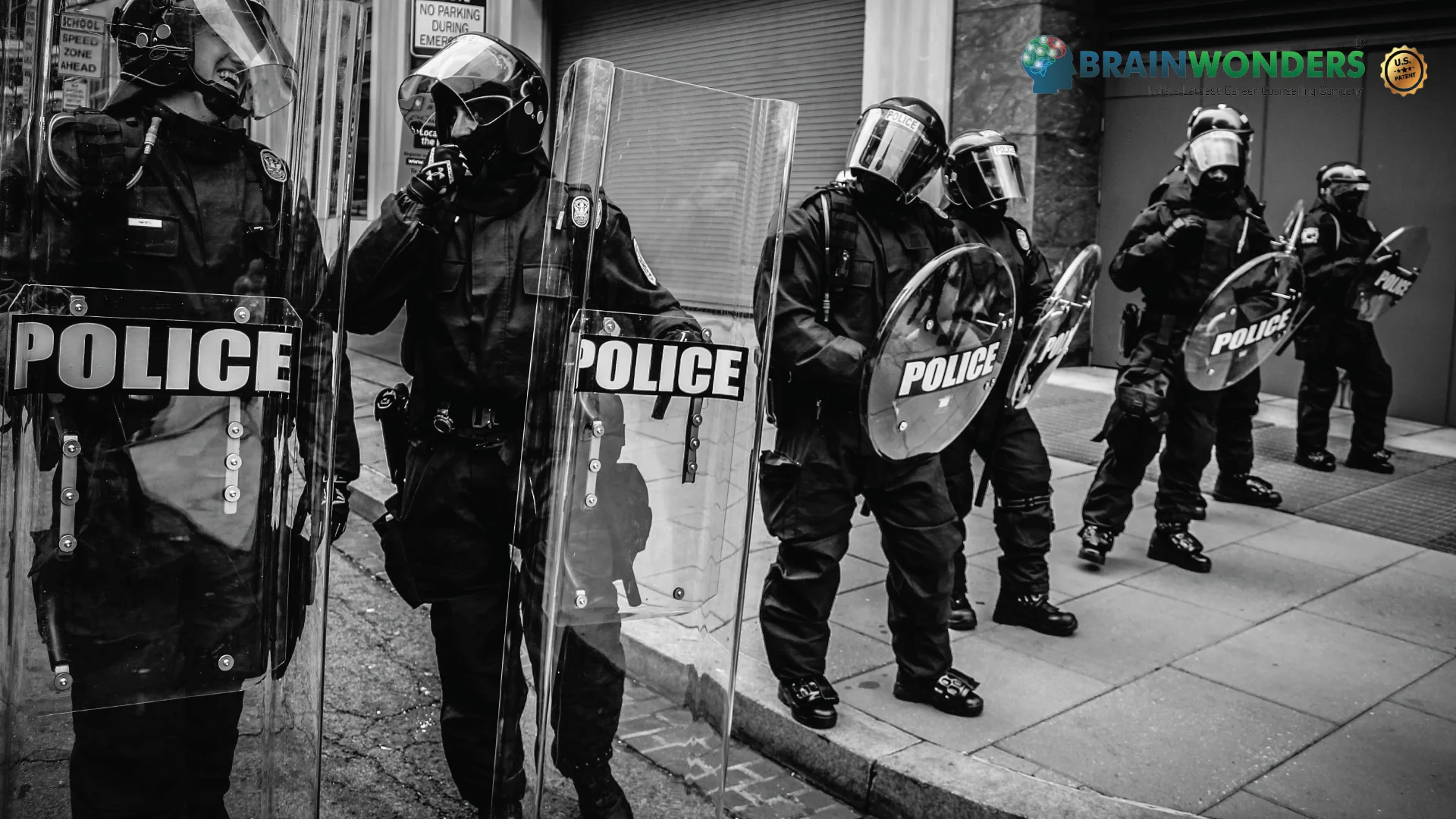How to become a Police Officer
Overview, Courses, Exam, Colleges, Pathways, Salary

Overview
Who is Police Officer ?
An individual involved with a career in the police department is obliged to fulfil their duties by identifying, follow or arrest suspects involved in criminal acts. They are responsible for public safety by keeping a check on the quick reaction towards emergencies. They must be willing to keep the people safe and exercise laws wherever needed. They promote good community relations. They record facts to make reports that register incidents and activities. They register, investigate and solve illegal or suspicious activities. The career of a police officer is one of the most highly valued positions in society. They must register facts in the form of reports that contain incidents and testimonials. They are authorised to investigate the illegal or suspicious aspects of an activity and take action against it. Maintaining law and order must come in handy to them along with identifying the problems and situations that lead to the crime. A good built-up physique is also required for the job. They either work as a team or take charge independently to get a task done.
Typical day at work
What does Police Officer do?
The role and responsibilities of a police officer are :
- Interviewing the suspected or probable criminal and taking down their statements.
- Generate a report by compiling the data together that was found from various sources.
- Paperwork is crucial to them as they must follow all the legal procedures of drafting a report.
- Gathering and providing relevant evidences to the court.
- Establishing the reliability of the people and information collected
- Conducting interviews, search for records, keep a watch on suspects are the mandatory parts of the work profile.
- Take part in raids and arrests to collect evidence or get hands-on criminals.
- In case of requirement, they must testify in court.
Abilities and Aptitude needed
What are the skills, abilities & aptitude needed to become Police Officer?
Becoming a police officer requires a diverse set of abilities, skills, and aptitudes to handle the challenges and responsibilities of law enforcement. Here are some critical qualities needed to become a successful police officer:
- Physical Fitness: Police officers must be physically fit to handle the job's demands, including foot pursuits, lifting, and various physical tasks.
- Problem-Solving Skills: Police officers encounter complex and unpredictable situations, requiring the ability to think critically, assess risks, and make sound decisions quickly.
- Communication Skills: Effective communication is crucial for police officers to interact with the public, colleagues, witnesses, and victims. Clear and empathetic communication helps build trust and resolve conflicts.
- Emotional Intelligence: Police officers must be emotionally resilient and manage stress and emotions during challenging and high-pressure situations.
- Ethical Conduct: Upholding high ethical standards is fundamental for police officers to maintain public trust and credibility.
- Decision-Making: Making timely and ethical decisions is essential in various law enforcement scenarios, including when using force or making arrests.
- Observational Skills: Strong observation skills are critical for gathering accurate information, identifying potential threats, and detecting criminal activities.
- Teamwork: Police officers often work in teams and must collaborate effectively with colleagues, other law enforcement agencies, and community partners.
- Empathy and Compassion: Police officers need empathy and compassion to handle sensitive situations, support victims, and de-escalate tense encounters.
- Cultural Sensitivity: A diverse community requires cultural sensitivity and awareness to treat everyone fairly and respectfully.
- Conflict Resolution: Police officers should possess conflict resolution skills to mediate disputes and prevent situations from escalating.
- Leadership: As law enforcement professionals, police officers may find themselves in leadership roles, requiring strong leadership skills and the ability to inspire and motivate others.
- Adaptability: Law enforcement encounters various situations, and officers must adapt to changing circumstances and environments.
- Legal Knowledge: Understanding laws and legal procedures are crucial for police officers to ensure that they act within the boundaries of the law while protecting citizens' rights.
- Courage: Police officers often face dangerous and life-threatening situations, requiring courage and a commitment to protecting the community.
Salary
Salary for Police Officer?
Salary of A Police Officer is as follows :
- Minimum Monthly Salary: The minimum monthly salary for an entry-level police officer may vary based on the region, department, and experience level. It could range from INR 25,000 to INR 40,000 or more in India.
- Maximum Monthly Salary: Highly experienced and skilled police officers, especially those in senior positions or with specialized training, may earn a monthly salary ranging from INR 70,000 to INR 1,00,000 or more.
- Annual Salary: The annual salary for entry-level police officers could be approximately INR 3 lakhs to INR 5 lakhs per year. Experienced and well-qualified officers may earn a maximum yearly salary ranging from INR 8 lakhs to INR 12 lakhs or more.
- Highest-Paying Jobs and Scope: The highest-paying jobs for police officers are often found in specialized units, such as SWAT teams, anti-terrorist units, or investigative divisions. Advancement opportunities exist for officers with exemplary performance, leadership skills, and additional training in cybercrime, narcotics, or community policing. As the need for law enforcement remains constant, police officers with strong problem-solving abilities, communication skills, and a commitment to public service will have career growth and advancement opportunities in the field. Police officers play a crucial role in maintaining public safety and upholding the rule of law, contributing significantly to the well-being and security of the communities they serve.
Pathways
How to become an Police Officer?
Entrance Exam
Entrance Exam for Police Officer ?
To become a Police Officer, the aspirant must first choose which designation they are opting for. The eligibility/Selection and recruitment criteria for police officer is different for different designations. The aspirant wish to become SP/ ASP/ DSP, the individual need to clear IPS examination. State governments conduct separate recruitment exam for different posts. The recruitment/selection of police officer process will comprise of both written and physical test. The aspirants must have the proper height and weight depending on the post. The details regarding physique will be specified in the recruitment notifications. Another authority that conducts the recruitment exam for Sub-Inspector of Police in several states is Staff Selection Commission (SSC). Aspirants from any stream/ subject in Class 12/ UG/ PG can become police officers after clearing the recruitment exam and physical tests.
Courses
Which course I can pursue?
Best Colleges
Which are the best colleges to attend to become an Police Officer?
Industries
Which Industries are open for Police Officer?
Police officers primarily work in law enforcement agencies and departments, but their skills and training can be valuable in various industries. Some industries where police officers may find employment or related opportunities include:
- Law Enforcement Agencies: Police officers work in various law enforcement agencies, including local police departments, state police, highway patrol, and federal agencies like the FBI or DEA.
- Security and Private Investigation: Many police officers transition to security roles in private companies, where they protect assets, conduct investigations, and provide executive protection services.
- Corporate Security: Some corporations hire police officers to oversee their security operations, ensuring the safety of employees, visitors, and company property.
- Cybersecurity: With the rise of cybercrime, police officers with technical skills and cybersecurity training may find opportunities in this specialized field.
- Corrections and Prisons: Police officers may work in correctional facilities, overseeing inmate supervision and safety.
- Homeland Security: Experienced police officers may join homeland security agencies to protect the nation from threats like terrorism and border security.
- Government Agencies: Police officers may work in various government departments related to law enforcement, regulatory compliance, or investigative roles.
- Education and Training: Experienced police officers can become instructors in police academies or training centers, passing their knowledge and skills to recruits.
- Private Consulting and Security Firms: Police officers with specialized skills may work as consultants or trainers for private security firms.
- Emergency Management: Police officers may work alongside other first responders in disaster response and emergency management efforts.
- Nonprofit and NGO Roles: Some nonprofit organizations and NGOs engage police officers for community outreach, crime prevention programs, or conflict resolution initiatives.
- Private Legal Firms: Police officers with expertise in criminal investigations may work as private investigators for legal firms.
internship
Are there internships available for Police Officer?
Here are some possible internship opportunities:
- Police Departments: Some police departments offer internships to individuals interested in a law enforcement career. Interns may shadow officers, assist with administrative tasks, or participate in community outreach programs.
- Criminal Justice Programs: Colleges and universities with criminal justice programs may facilitate internships with local law enforcement agencies to provide students with practical experience in the field.
- Government Agencies: State or federal law enforcement agencies may have internship programs for individuals interested in learning about the broader aspects of law enforcement and criminal justice at a higher level.
- Public Safety and Emergency Management: Internships in public safety or emergency management departments can provide exposure to law enforcement, disaster response, and emergency planning.
- Crime Analysis Units: Some police departments have crime analysis units that utilize data and technology to understand crime patterns. Interning in such units can provide insights into crime prevention and analysis techniques.
- Victim Advocacy Organizations: Nonprofit organizations that support crime victims may offer internships to individuals interested in understanding victim support services and criminal justice advocacy.
- Community Policing Initiatives: Police departments may have community policing programs that involve working closely with the community. Interning in such programs can provide exposure to community engagement and problem-solving approaches.
- Police Training Academies: Some police training academies may offer internships to individuals interested in understanding the training process for new police recruits.
- Research and Policy Analysis: Research institutions or policy think tanks may have internship opportunities for criminal justice research and policy analysis.
Career outlook
What does the future look like for Police Officer?
The occupational outlook of a police officer is projected to grow by 5 per cent in the decade of 2019 to 2029, growing in a better way than most of the average careers associated with the field. The growing need in the field is sure to open many new career paths and positions for officers opting for this course. The people joining the career enjoy the dignity and status associated with it. They receive a sense of pride and achievement in society. They enjoy a number of job benefits and government schemes apart from the salary allocated to them. They acquire excellent training that helps them fulfil their job role to an optimum level, such as identification of the problem, finding possible solutions to the same problem, then applying the best solution for the same. While keeping a check on other careers, the profession of police officers does not have layoffs, this is because the retiring officers make way for the new recruits.



